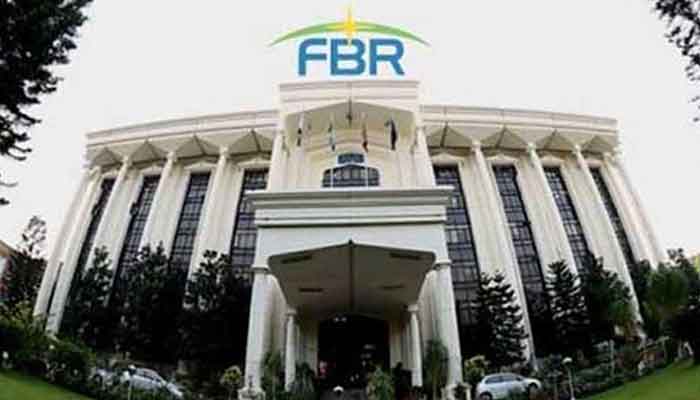
FBR Penalty Notice under Section 182 : The Federal Board of Revenue (FBR) imposes penalties under Section 182 of the Income Tax Ordinance, 2001, for various offenses committed by taxpayers. If a taxpayer commits any such offense, they may be liable to pay a fine. Typically, FBR first issues a show cause notice, requiring the taxpayer to explain their position before imposing any penalty.
Common Example (Section 114 )
One of the most common notices issued is that FBR Penalty Notice under Section 182 and 114 , which relates to failure to file an income tax return by the due date.
Step-by-Step Response Procedure:
Receipt of Show Cause Notice
The FBR sends a show cause notice outlining the alleged offense. Taxpayers are required to respond within the timeframe specified in the notice.
- Right to Respond
Taxpayers may:- Appear personally before the tax officer,
- Appoint a legal representative to appear on their behalf, or
- Submit a written reply, depending on the facts of the case.
If the Notice is Ignored
If the taxpayer fails to respond, the tax officer may issue an ex-parte order.
- The taxpayer has the right to appeal this order within 30 days.
- If no appeal is filed, and if the order includes a tax liability, the FBR may initiate recovery proceedings.
Legal Grounds for Contesting FBR Penalty Notice under Section 182:
When No Tax is Payable
Courts including the ATIR, High Courts, and the Supreme Court of Pakistan have ruled in many cases that:
- If there is no loss of revenue to the government, no penalty should be imposed.
- If no tax is payable along with the tax return, Section 182 cannot be invoked.
Example:
Consider a salaried individual who receives net salary after tax deduction at source by the employer, and has no other income. Since all taxes are already deducted, there is no additional tax payable at the time of return filing. If such a person fails to file or files the return late, no penalty can be imposed under Section 182.
However, repeated non-compliance can lead to further scrutiny. It is important to remember that in a tax-compliant society, even those with no tax payable are required to file returns on time.
When Tax is Payable
If an individual has business or property income along with salary income—or if total income exceeds the minimum taxable threshold (currently Rs. 600,000 for individuals)—they are liable to both pay tax and may be subject to penalty for non-filing.
Note: Penalties should only be imposed when the act is intentional or willful. Each case must be assessed on its own merits, and tax officers do not have blanket authority to impose penalties. In exceptional circumstances, penalties may be waived.
Penalty Rates for Non-Filing of Tax Returns:
Under Section 182, the applicable penalty for not filing a tax return is the higher of:
- 0.1% of the tax payable for each day of default, or
- Rs. 1,000 per day of default
Minimum Penalty:
- Rs. 10,000 for salaried individuals (having at least 75% of income from salary)
- Rs. 50,000 for all other cases
Maximum Penalty:
- Not to exceed 200% of the tax payable
Penalty Reduction if Return Filed Late (but voluntarily):
- 75% reduction if filed within 1 month after the due date
- 50% reduction if filed within 2 months
- 25% reduction if filed within 3 months
Final Advice:
Taxpayers should take FBR Penalty Notice under Section 182 seriously and respond promptly. Where penalties are unjustified—such as in cases where no tax is payable—legal arguments and precedents can be cited in the reply. It’s advisable to consult a tax professional for guidance based on the specific facts of each case.
Summary of Offenses and Penalties (FBR – Income Tax Ordinance)
| Offense | Penalty |
| 1. Purchase of immovable property (value over Rs. 5 million) through cash or bearer cheque | 5% of the property’s value as determined by FBR or provincial stamp duty authority, whichever is higher. |
| 2. Failure to furnish statements under sections 165, 165A, or 165B within due date | – 5,000 if tax was deposited on time and statement is filed within 90 days.- Otherwise, Rs. 2,500 per day (minimum Rs. 10,000).- If no tax was required to be collected/deducted, minimum penalty is Rs. 10,000. |
| 3. Failure to furnish wealth statement or reconciliation statement | 0.1% of taxable income per week or Rs. 100,000, whichever is higher. |
| 4. Failure to furnish foreign assets and income statement | 2% of the foreign income or asset value per year of default. |
| 5. Failure to apply for registration (where required) | 10,000.00 |
| 6. Failure to deposit tax within due date | – 1st default: 5% of the tax in default.- 2nd default: Additional 25%.- 3rd and subsequent: Additional 50%.Note: 50% reduction allowed if tax is paid without appeal under certain conditions. |
| 7. Repeating erroneous tax calculation resulting in underpayment | 30,000 or 3% of the tax shortfall, whichever is higher.No penalty if position was reasonably arguable. |
| 8. Failure to deduct/collect tax or deposit collected/deducted tax (u/s 160) | 40,000 or 10% of the tax amount, whichever is higher. |
| 9. Failure to display NTN or business license at business premises | 5,000.00 |
If you have received a FBR Penalty Notice under Section 182 and need assistance, our consultancy services are available. Please contact us through our website by filling out the Contact Us form, or reach out via our social media accounts


